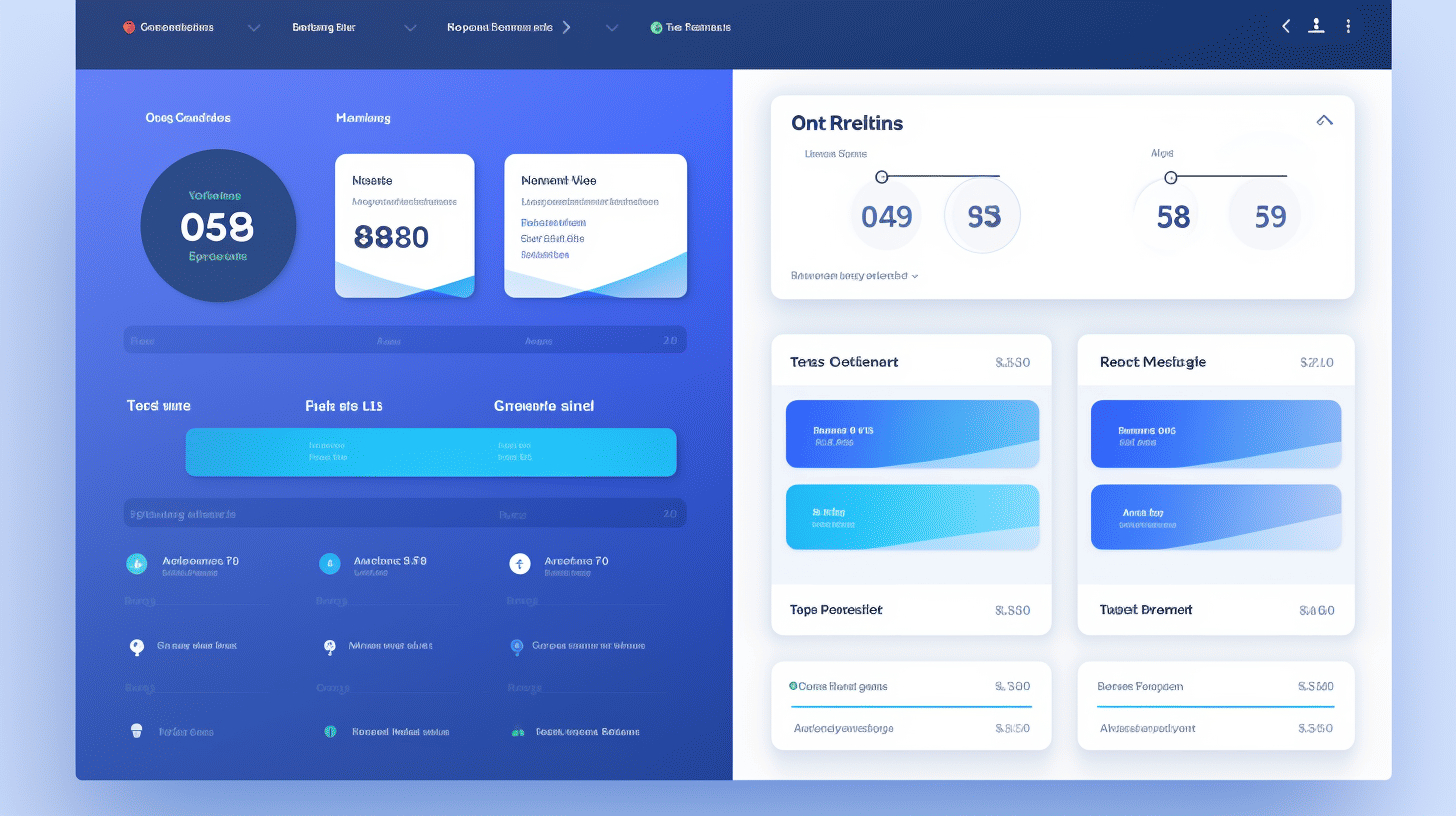In today’s fast-paced digital world, a website’s performance is crucial to its success. Slow loading times, clunky navigation, and unresponsive design can all lead to frustrated users and high bounce rates. This is especially true for WordPress users, as the platform powers over 40% of all websites on the internet. So, if you’re a WordPress user looking to master website performance and provide an exceptional user experience, you’re in the right place.
In this article, we will explore the best practices for optimizing your WordPress website’s performance. From choosing the right hosting service to implementing caching techniques, we’ll cover everything you need to know to ensure your website runs like a well-oiled machine. By following these tips and tricks, you’ll be able to enhance your website’s speed, improve conversion rates, and provide an outstanding browsing experience for your visitors.
But before we dive into the nitty-gritty of WordPress performance optimization, let’s take a look at some eye-opening statistics that highlight the platform’s growing dominance and global usage.
So grab a cup of coffee, put on your optimization hat, and let’s get started! 🚀
WordPress Usage Statistics
Introduction:
WordPress is undoubtedly one of the most popular content management systems (CMS) in the world. With its user-friendly interface, extensive customization options, and a vast array of plugins and themes, it has become the go-to choice for individuals and businesses alike. Let’s dive into some fascinating statistics that highlight the widespread adoption and growth of WordPress.
WordPress’s Growing Market Share
WordPress’s dominance in the CMS market is quite impressive, with its market share steadily increasing year after year. Here are some noteworthy statistics:
- WordPress powers 45.8% of all websites globally in 2023, with a market share of 63.5% in known CMS websites[1]. 🌍📈
- There are currently 455 million websites using WordPress worldwide, out of a staggering total of 1.4 billion websites[2]. That’s no small feat! 💪
- WordPress powers 43.1% of all websites on the internet, with a growth rate of 4.5% since 2020[3]. This steady growth is a testament to its continued popularity. 🚀📊
- Over 810 million websites use WordPress, accounting for 43.2% of all live websites[4]. These numbers speak volumes about the trust and confidence people have in this CMS. 🙌
Global WordPress Usage
Let’s explore some more statistics that illustrate the widespread adoption of WordPress worldwide:
- WordPress powers 43.2% of the top 10 million websites and holds a 65.1% market share in the CMS market[5]. Clearly, WordPress is the preferred choice for high-traffic sites and businesses of all sizes. 🥇💼
- Every month, 409 million people view over 20 billion pages through WordPress, with over 70 million posts published[6]. These staggering activity numbers highlight the scale and reach of WordPress as a platform for both content consumption and creation. 💻📚
- WordPress usage grew by 5% in 2021, and it receives more than 400 million visitors each month[7]. These continuous growth trends indicate that WordPress remains on the rise and shows no signs of slowing down. 📈✨
From these statistics, it’s evident that WordPress is the CMS of choice for millions of websites worldwide, offering a robust and flexible platform to create, manage, and publish content online. It’s not surprising that individuals, businesses, and even renowned brands rely on WordPress to power their online presence.
So, whether you’re a seasoned WordPress user or looking to join the ranks of WordPress enthusiasts, you can be confident that you’re in good company when you choose this popular CMS.
[1]: Source
[2]: Source
[3]: Source
[4]: Source
[5]: Source
[6]: Source
[7]: Source
Importance of Website Performance
Intro:
In today’s fast-paced digital landscape, the performance of a website plays a crucial role in attracting and retaining visitors. A slow-loading website can be frustrating for users, leading to a decline in engagement and conversion rates. On the other hand, a fast and efficient website not only provides a better user experience but also has a positive impact on search engine rankings. In this article, we will explore the importance of website performance and how it can directly impact your business’s success online.
Impact of Website Speed on Conversion Rates
When it comes to websites, speed matters. Users have become accustomed to instant gratification, and a slow-loading website can quickly turn them away. Here’s why website speed is crucial for your business:
- Enhanced User Experience: A fast-loading website ensures that users can navigate through your content seamlessly. It reduces the waiting time and frustration, leading to a positive user experience. When users have a great experience on your website, they are more likely to stay longer, explore more pages, and ultimately convert into paying customers.
- Higher Conversion Rates: Did you know that even a small improvement in website speed can have a significant impact on conversion rates? According to recent studies, a mere 0.1-second improvement in website speed can increase conversion rates by up to 8%. This means that by optimizing your website’s performance, you can potentially boost your sales and revenue.
- Improved Search Engine Rankings: Search engines, like Google, consider website speed as one of the ranking factors. A slow website may result in a lower search ranking, making it harder for potential customers to find you. By improving your website’s performance, you not only provide a better experience for users but also increase your chances of ranking higher in search engine results.
- Mobile Responsiveness: In today’s mobile-driven world, having a website that loads quickly on smartphones and tablets is crucial. Mobile users expect instant access to information, and if your website takes too long to load, they are more likely to abandon it and turn to your competitors. Optimizing your website’s performance ensures that it is mobile-friendly and accessible to a wider audience.
In conclusion, website performance is a key aspect of any successful online presence. By prioritizing speed and optimization, you can provide a better user experience, increase conversion rates, improve search engine rankings, and cater to the growing mobile audience. Investing in website performance optimization is an investment in the growth and success of your business.
💡 Fun Fact: Did you know that Amazon found that for every 100 milliseconds of extra load time, their sales decreased by 1%? That just goes to show how critical website speed is when it comes to conversions.
Best Practices for WordPress Performance Optimization
Are you looking to optimize the performance of your WordPress website? In today’s fast-paced digital world, site speed plays a vital role in user experience, SEO rankings, and overall success. To help you supercharge your WordPress site’s performance, we have compiled a list of best practices that will enhance your website’s speed and responsiveness.
Choosing a Reliable Hosting Service
Selecting a good hosting service is the foundation of a high-performing WordPress website. A reliable hosting provider offers robust server infrastructure, optimal uptime, and efficient support. Here are a few key tips to consider when choosing a hosting service:
- Look for a hosting provider that specializes in WordPress: WordPress-optimized hosting ensures compatibility and better performance.
- Evaluate server response time: A fast server response time is crucial for quick website loading.
- Consider scalability: Your hosting provider should offer flexible plans that can accommodate your growing website needs.
- Check user reviews: Feedback from other users can provide insights into the hosting provider’s reliability and performance.
Using a High-Quality Theme
The theme you choose for your WordPress website can significantly impact its performance. Consider the following factors when selecting a theme:
- Opt for lightweight themes: Themes with minimal code and optimized design help load your website faster.
- Choose a reputable theme from a trusted source: Premium themes from reputable developers are more likely to have clean code and frequent updates for improved performance.
- Ensure responsiveness: A responsive design ensures your website functions seamlessly across different devices, enhancing user experience and performance.
Optimizing Images
Images can contribute to a significant portion of your website’s total file size. Optimizing images is essential for reducing load times and improving front-end performance. Here are some image optimization best practices:
- Resize images: Before uploading images to your website, ensure they are resized according to their display requirements. Avoid uploading large images and scaling them down using CSS.
- Compress images: Use image compression tools or plugins to decrease the file size without compromising image quality. Popular plugins like Smush and Imagify can automatically optimize images on your website.
Implementing Caching
Caching is a technique that stores static versions of your website, reducing the load on the server and improving response times. Here’s how you can implement caching in WordPress:
- Use caching plugins: Install caching plugins like W3 Total Cache or WP Super Cache to generate static HTML files of your website for faster loading.
- Configure background tasks: Enable background caching tasks to ensure your website’s cache remains up to date.
Updating and Using the Latest PHP Version
Regularly updating your WordPress installation, themes, and plugins is crucial for both security and performance. Additionally, using the latest version of PHP offers various performance benefits. Here’s why you should keep everything up to date:
- Enhanced performance: Updated components and plugins often come with bug fixes, performance improvements, and optimized code.
- Security: Older versions may have security vulnerabilities that can be exploited. Keeping everything up to date helps safeguard your website from potential threats.
- PHP performance: Upgrading to the latest PHP version can result in significant improvements in website speed. PHP 7.4, for example, can handle up to 3x more requests per second compared to PHP 5.6.
By implementing these best practices, you can supercharge your WordPress website’s performance and offer an optimal user experience. To learn more about WordPress performance optimization, check out this comprehensive guide on supercharging WordPress performance. Start optimizing your website today and reap the benefits of a lightning-fast WordPress site!
Additional Practices for WordPress Performance Optimization
In addition to the best practices mentioned earlier, there are several other techniques you can employ to further optimize the performance of your WordPress website. These additional practices can enhance your site’s speed, improve user experience, and boost your search engine rankings. Let’s take a closer look at some of these effective strategies:
Dividing Comments into Pages
If your WordPress website receives a significant number of comments on your blog posts, it’s a good idea to split them into pages. Rather than loading all the comments at once, which can slow down your page load time, dividing them into pages allows users to read through comments more easily.
By default, WordPress shows all the comments on a single page, but you can change this setting to display a specific number of comments per page. This helps in improving the overall speed of your website and prevents your pages from becoming too long and cluttered.
Enabling GZIP Compression
GZIP compression is a technique that reduces the file size of your website’s resources, such as HTML, CSS, and JavaScript files, before they are sent to the user’s browser. Enabling GZIP compression can significantly reduce the amount of data that needs to be transferred, resulting in faster page load times.
To enable GZIP compression in WordPress, you can either modify your server’s configuration file or use a plugin like GZip Ninja Speed Optimization. With just a few clicks, this plugin can automatically enable GZIP compression for your website without any technical knowledge required.
Utilizing a Content Delivery Network (CDN)
A Content Delivery Network (CDN) is a network of servers located in different geographic locations. When a user visits your website, the CDN serves the static files (like images, CSS, and JavaScript) from the server that is closest to the user, reducing the distance the data needs to travel and thus improving the page load time.
By integrating a CDN with your WordPress website, you can distribute your site’s content across multiple servers worldwide, ensuring fast and reliable delivery to users regardless of their location. Popular CDN services include Cloudflare and MaxCDN, both of which offer easy integration with WordPress.
Minifying CSS and JavaScript
Minifying CSS and JavaScript files involves removing unnecessary characters, such as white spaces, comments, and line breaks, without affecting the functionality of the code. This process reduces the file size, thereby speeding up the loading time of your website.
Various plugins are available for WordPress that can automatically minify your CSS and JavaScript files. One such popular plugin is Autoptimize, which not only minifies your files but also caches and combines them for optimal performance.
By implementing these additional practices for WordPress performance optimization, you can further enhance the speed and efficiency of your website, making it more pleasant for visitors and search engines alike. Take advantage of these strategies to create a seamless and lightning-fast user experience for your WordPress site.
Frequently Asked Questions
- What are some best practices to improve website performance for WordPress users?
Some best practices to improve website performance for WordPress users include optimizing images, using a caching plugin, minifying CSS and JavaScript files, using a content delivery network (CDN), and regularly updating WordPress and plugins.
- Why is website performance important?
Website performance is important because it directly affects user experience, conversion rates, and search engine rankings. A fast-loading website provides a better user experience, keeps visitors engaged, and helps in achieving business goals.
- How can I optimize images on my WordPress website?
You can optimize images on your WordPress website by resizing them to the correct dimensions, compressing them without losing quality using tools like Smush or EWWW Image Optimizer, and lazy loading them to ensure they only load when needed.
- What is a caching plugin and how does it help improve website performance?
A caching plugin creates static HTML versions of your website pages and stores them on the server. When a visitor requests a page, the cached version is served, eliminating the need for dynamic processing. This speeds up page loading time and reduces server load.
- Should I update WordPress and plugins regularly for better performance?
Yes, regular updates of WordPress core and plugins are crucial for maintaining website performance and security. Updates often include bug fixes, performance improvements, and security patches, ensuring your website runs smoothly and remains protected.



















